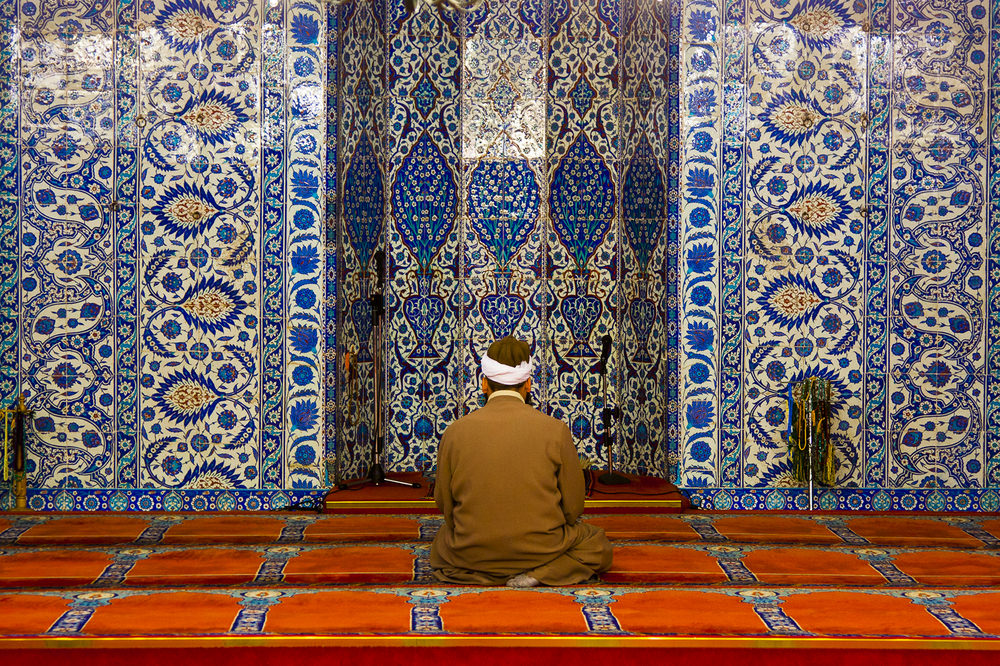Alhamdulillah, I was able to attend the ISNA Mosque Forum on the weekend of May 9th. Dr. Ihsan Bagby headed up this project, the goal of which is to start providing actual solutions for improvement to our masajid.
Instead of giving an exhaustive play-by-play, I’ll share here what some of my big picture take-aways from the program – it’s important that we start highlighting positive efforts to move our communities in the right direction. From my perspective, I think a lot has been made of the issues our communities have. The challenge lies not in articulating a solution – but in communicating that solution to the people who need to hear it in a way that they’ll be receptive to it.
There were 4 primary sessions (Funding, Dynamic Communities, Governance, Youth Outreach) followed by a banquet.
Fundraising
Keep supporting MuslimMatters for the sake of Allah
Alhamdulillah, we're at over 850 supporters. Help us get to 900 supporters this month. All it takes is a small gift from a reader like you to keep us going, for just $2 / month.
The Prophet (SAW) has taught us the best of deeds are those that done consistently, even if they are small.
Click here to support MuslimMatters with a monthly donation of $2 per month. Set it and collect blessings from Allah (swt) for the khayr you're supporting without thinking about it.
One stat that jumped out at me from this session was that 82% of philanthropy in the US comes from individual giving. The number one reason that people don’t give, is that they haven’t been explicitly asked. Although that last sentence might sound comical in light of the volume of fundraisers we sit through, it actually brings up something interesting about how masjids interact with their donor base. Most do not collect data about their donors, especially at Juma. This makes it difficult to stay engaged with them. They key for organizations is to develop relationships with their donors on an individual basis (see: 7 Ways to Thank a Donor).
Another thing I found interesting was the discussion on endowments. A lot of us are pushing for communities to develop endowments as an alternative to the fundraising model. One of the speakers noted that even institutions with huge endowments (like Harvard) still fundraise. The individual philanthropy must be tapped into. We just need to find better ways of cultivating individual relationships with the people in our communities.
Dynamic Communities
This session focused on inclusion and community building. The bottom line here is that our masjids need to be community focused and inclusive. Sisters inclusion in particular is a pain point. While there are the obvious issues like under representation on boards, and sub-standard physical accommodations – one thing that stood out to me was the phrase that it is traumatic when a sister walks into a masjid and feels unwelcome. A couple of years ago I recorded an interview with Sh. AbdulNasir Jangda on the role of the masjid. To summarize a 30 minute interview in one line – the purpose of the masjid is to welcome people. This is a responsibility that falls on the shoulders of the whole community. There needs to be a renewed focus on making sure we are doing everything possible to have a welcoming environment for everyone in our institutions.
A slogan that represents what the community should comprise was given by one of the speakers – Live, work, play, pray together. That’s a community in a nutshell.
Essentials of High Functioning Masjid Boards (Governance)
Good management is needed to run a masjid well. Obviously. Masjids need two bodies – one that is focused on day to day decision making, and another body that is focused on the big picture vision of the masjid. It’s vital to have both working in cohesion. The bigger takeaway for me (aside from governance structure) was the idea of introducing metrics to our masajid.
For example, if a child attends the masjid Sunday School for a year, what difference will we see? This is a lot different than setting a curriculum with objectives and trying to say what a student will accomplish. How will a person tangibly be different? Taking it a step further – what is the metrics for a year’s worth of masjid halaqahs? Financial positioning? Attendance? There are a host of things to measure, but we need to start measuring them. Show the efficacy of what you’re doing.
Youth
Simply put, masjids need to find a way to pull youth into the masjid. And when they do, they need to be okay with the fact that there will be more intermingling, vandalism, cursing, disrespect, theft, and fights in the masjid. These things can be fixed over time, but the youth need to be brought in somehow – with some involvement beyond stacking chairs or directing parking at a fundraising dinner.
To engage the youth, the following four points must be incorporated,
- Foster empathy and understanding
- Empower with an open platform and ownership of projects
- Collaborate on inter-generational activities
- Creativity/Aesthetics – cafes, youth lounges, etc.
Banquet
I wanted to highlight the keynote presentation by Sh. AbdulNasir Jangda [here’s an excellent recap based on the talk]. The premise of it was investing in human resources before structures. I didn’t take any notes on it, I just hope they post the video soon – we’ll share it as soon as they do.
Resources
Make sure to check out the Assessment Study by Dr. Ihsan Bagby and also check out the work being produced by ISPU.























Habib
June 7, 2014 at 2:46 PM
Great article.
Jazakallah khair
Here is a question to MM staff
Where is the “archives” section so I can see past articles?
Thanks
Aly Balagamwala
June 9, 2014 at 8:11 AM
Dear Habib
http://muslimmatters.org/2014/ would give you all articles of 2014. http://muslimmatters.org/2014/06/ would give you all articles in June 2014.
Aly
Hyde
June 9, 2014 at 9:31 AM
That is quite helpful.
Maqbool
June 10, 2014 at 1:25 AM
Jazakallah Khair
I wish there was a “Archive” Tab or button so people could go there and then the archive section could be categorized by year
peace habibi
Aly Balagamwala
June 10, 2014 at 10:13 AM
I will pass on your suggestion to tech team.